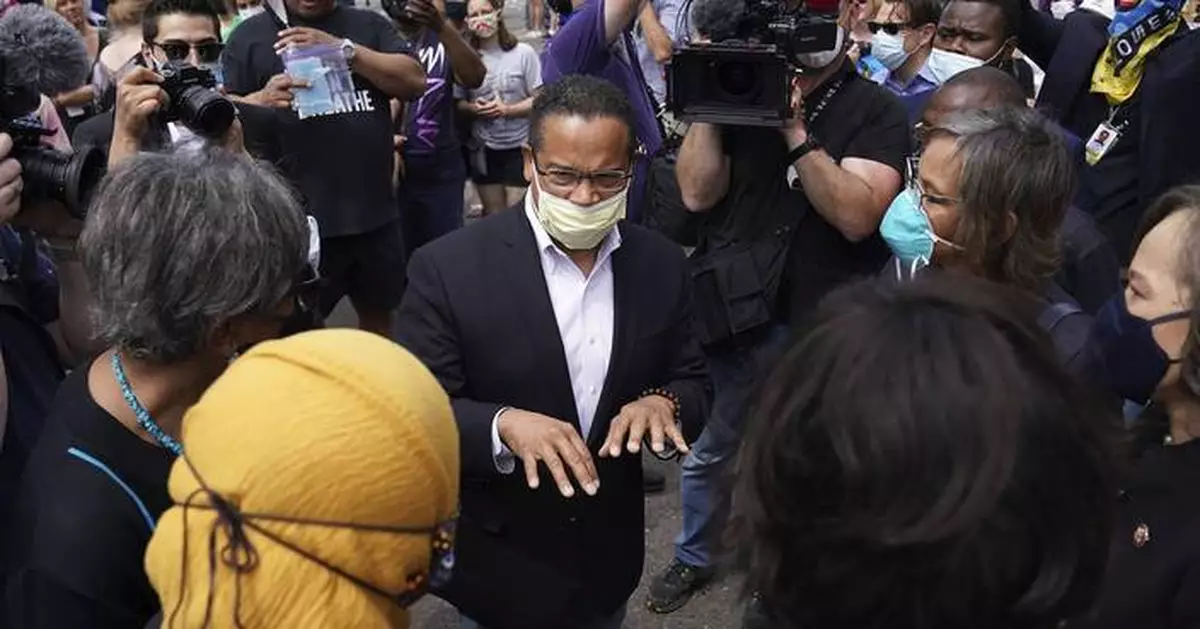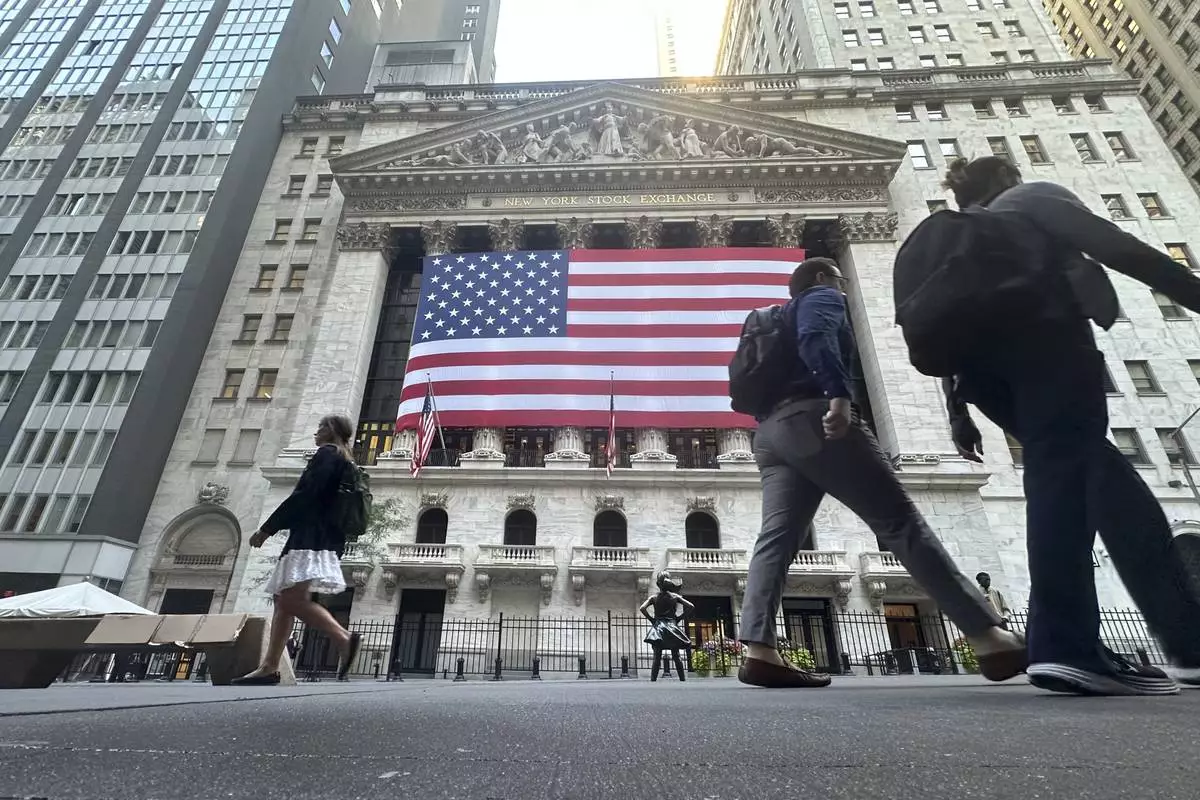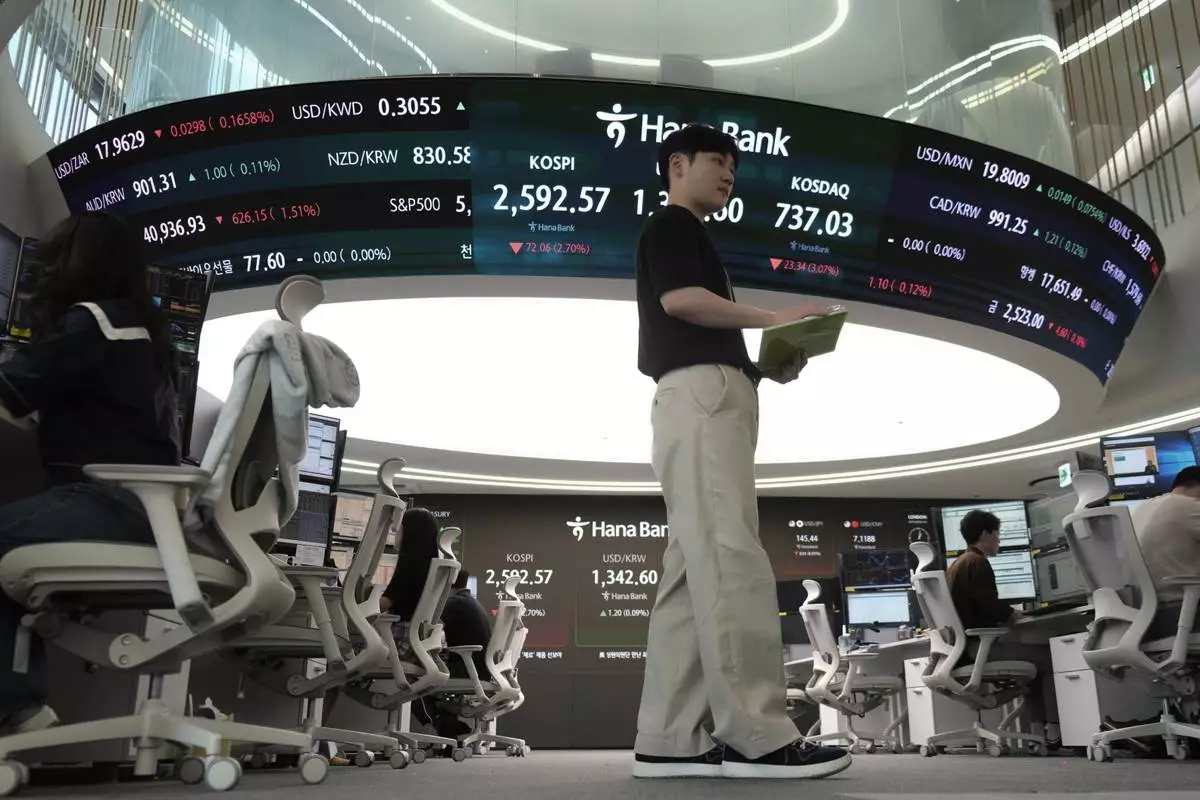WASHINGTON (AP) — Corporate policies meant to advance diversity and inclusion in the workplace are legal and should be expanded to promote broad economic prosperity and reduce racial wealth inequities, according to a new report by the Congressional Black Caucus.
The report released Monday offers guidelines to corporations on the best practices to adopt to advance diversity, equity and inclusion policies in the workplace and calls on companies to recommit to advance racial justice in the workplace. The document also includes a roadmap for advancing wealth creation in Black communities and closing the racial wealth gap.
“In the wake of the death of George Floyd, corporations pledged $50 billion to racial equity and strengthening DEI policies,” said Rep. Steven Horsford, D-Nev., chair of the Congressional Black Caucus, in an interview. “DEI is now under attack, but the response from corporate America has been overwhelming.”
The findings follow a December open letter the caucus issued that called on corporations to “reaffirm their commitments to DEI" and work with the CBC to fulfill pledges on racial and economic inequality.
The study is the result of the ensuing monthslong dialogue between the caucus and nearly half of Fortune 500 companies, as well as academics and business analysts, to develop guidelines that promote DEI and Black economic mobility in an increasingly fraught political and legal environment. It cited corporations facing a backlash to such policies from conservative activists and lawmakers.
Horsford condemned “far right actors who are attempting to bully corporate America” to back away from DEI policies. He added that it was “erroneous” for corporations to rescind DEI policies because of the Supreme Court’s June decision overturning affirmative action programs in college admissions, which did not directly address corporate DEI policies.
“There is nothing under the law that is illegal or unconstitutional about corporations advancing DEI policies. I commend the corporations that answered our call. We are now giving the roadmap for what good looks like,” Horsford said, citing the study's title: “What Good Looks Like: A Corporate Accountability Report on Diversity, Equity and Inclusion.”
Since the Supreme Court’s ruling, more than a dozen Republican attorneys general have sent letters to Fortune 500 corporations threatening legal action over DEI policies. Earlier this year, GOP lawmakers in multiple states pursued restrictions on diversity and inclusion efforts in the workplace, and conservative legal groups have directed lawsuits at organizations focused on advancing underrepresented groups. Some companies have backed away from DEI policies they once promoted in the wake Floyd's death.
DEI policies are official guidelines and programs meant to welcome people of various backgrounds into an organization and create a culture where they feel included to do their work. Such policies can be as broad or narrow as an organization decides and can focus on any demographic.
In the immediate wake of the Supreme Court ruling, the Democratic chair of the Equal Employment Opportunity Commission, a federal agency focused on civil rights policies in the workplace, stated that the decision “does not address employer efforts to foster diverse and inclusive workforces or to engage the talents of all qualified workers.”
The study outlines twelve fields where corporations can focus on expanding DEI and help close the racial wealth gap, including guidance for workplace culture, data disaggregation, talent opportunities, retention rates, pay equity and procurement policies.
The study invites companies to “collaborate legislatively” to develop laws that “create perpetual accountability for corporate America, help close this massive gap of inequality, and support the values of our caucus.”
Most firms that engaged with the study came from the manufacturing industry, followed by companies in the financial services and information sectors. Fifty CEOs sat down directly with the CBC while companies also responded with other top representatives, letters and answers to questionnaires from lawmakers.
The CBC is one of the largest and most influential blocs in the Democratic congressional caucus. Its membership spans the party’s ideological and regional diversity but shares a commitment to advancing the interests of Black Americans, especially on issues like voting rights and economic mobility. House Minority Leader Hakeem Jeffries, D-N.Y., a CBC member, was involved in the development of the report.
“It is no longer acceptable to deliver promises without action,” the report reads. “The murder of George Floyd, like many other police-related killings preceding and following, shook our community and lit a fire of activism in parts of the nation that may have otherwise never stepped forward. Most of these corporations took advantage of that season of activism and publicly vowed to fight alongside us. It is now time to hold these corporations accountable.”

FILE - Minnesota Attorney General Keith Ellison, center, speaks with Rep. Ilhan Omar, D-Minn., and members of the Congressional Black Caucus as they visit the site of George Floyd's death in south Minneapolis on June 4, 2020. (Anthony Souffle/Star Tribune via AP, File)












